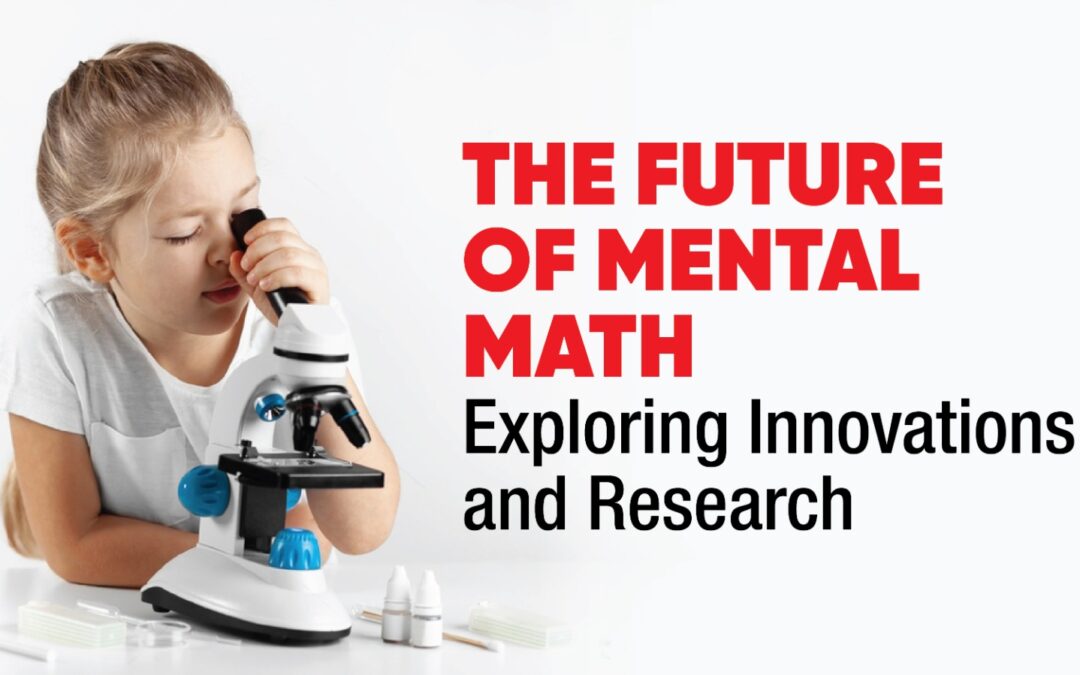Introduction:
In the ever-evolving landscape of education and cognitive development, the significance of mental math continues to grow. As technology advances and our understanding of brain functions deepens, the future of mental math holds exciting possibilities. This blog delves into the forefront of innovation and research, shedding light on how mental math is shaping the way we learn, think, and solve problems.
1.Neuroscience and Mental Math Enhancement:
Explore the intersection of neuroscience and mental math. Discover how brain imaging and cognitive studies are unveiling the profound impact of mental math on brain plasticity, memory retention, and overall cognitive abilities.
2. Tech-Infused Mental Math Learning:
Dive into the world of digital tools and apps designed to enhance mental math skills. Uncover how gamification, virtual reality, and AI are revolutionizing the way we learn and practice mental calculations.
3. The Role of Abacus in Modern Education:
Investigate how traditional tools like the abacus are finding new relevance in contemporary education. Learn how modern abacus programs integrate technology and gamified learning to engage learners of all ages.
4. Cross-Cultural Approach to Mental Math:
Explore how mental math techniques from different cultures converge and diverge. Examine how educators are incorporating global approaches to enrich mental math curricula.
5. Mental Math and Critical Thinking:
Delve into how mental math nurtures critical thinking and problem-solving skills. Understand its role in fostering creativity and analytical thinking, preparing individuals for the challenges of the future.
6. Mental Math in the Age of AI:
Reflect on the symbiotic relationship between mental math and artificial intelligence. Discover how human calculation skills remain invaluable in an era dominated by machines.
7. Personalized Learning and Mental Math Mastery:
Investigate how adaptive learning algorithms are tailoring mental math programs to individual learning styles and paces, ensuring effective skill acquisition.
8. Mental Math as a Life Skill:
Contemplate the broader applications of mental math beyond academia. Discuss its implications in everyday decision-making, financial literacy, and enhancing overall cognitive agility.
9. Empowering Diverse Learners:
Explore strategies for making mental math accessible and effective for learners with various abilities and learning preferences. Highlight the inclusivity and empowerment that mental math can offer.
10. The Educator’s Perspective: Adapting to the Future:
Gain insights from educators and experts who are at the forefront of mental math pedagogy. Learn about innovative teaching methodologies, classroom integration, and preparing students for a dynamic future.
Conclusion:
The horizon of mental math is marked by innovation, technology, and a deeper understanding of cognitive development. As we peer into the future, it’s evident that mental math will continue to play a pivotal role in shaping minds, nurturing critical skills, and fostering adaptability in a rapidly changing world. By embracing these advancements, we pave the way for a future where mental math is not just a skill, but a cornerstone of holistic education.



Recent Comments